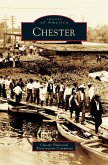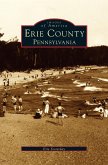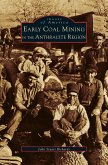Meadville began in 1788 as a frontier town in the "Old Northwest" at the far edge of the new United States of America. The land, awarded to founder David Mead as part of a court settlement, was remote, even isolated, but he and the earliest settlers were educated, well connected, and shared an ambitious vision for their new home. The early photographs contained in Meadville illustrate how the settlers went about achieving their goals and the results they obtained. Bridges replaced ferries; turnpikes, canals, and trains replaced Indian paths. The Erie Railroad carried goods and supplies over its rails, opening distant markets. Very soon, schools and colleges began to draw students, entrepreneurial townspeople manufactured new products, and area farmers and artisans filled the Market House. Music and theater at the Academy of Music and sporting events at Vallonia enriched leisure hours. Life in Meadville was good, as the founders had envisioned it. Meadville could be described the way French Creek was, as "one of the last great places on earth."
Hinweis: Dieser Artikel kann nur an eine deutsche Lieferadresse ausgeliefert werden.
Hinweis: Dieser Artikel kann nur an eine deutsche Lieferadresse ausgeliefert werden.








